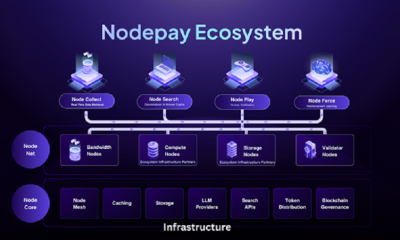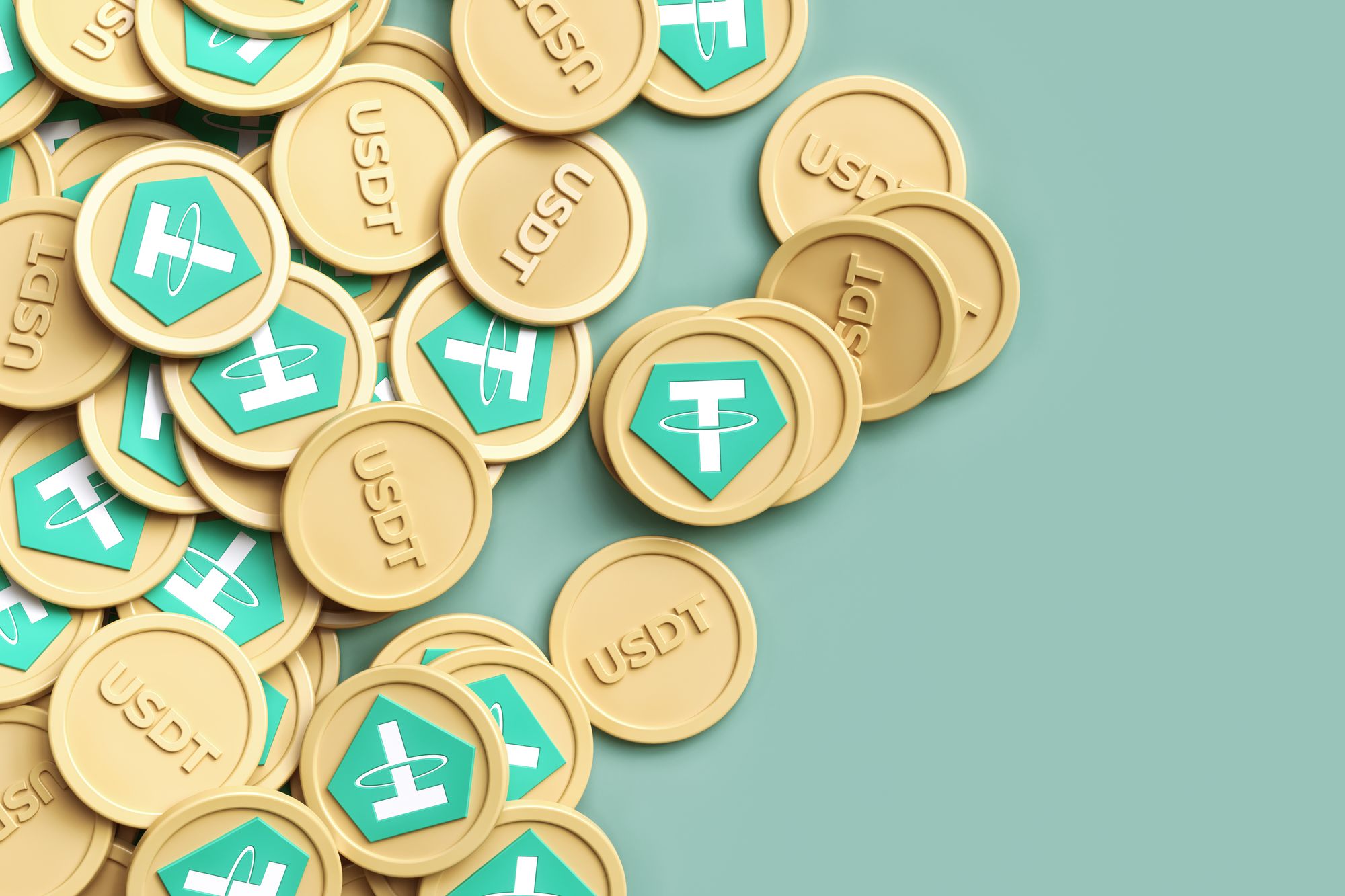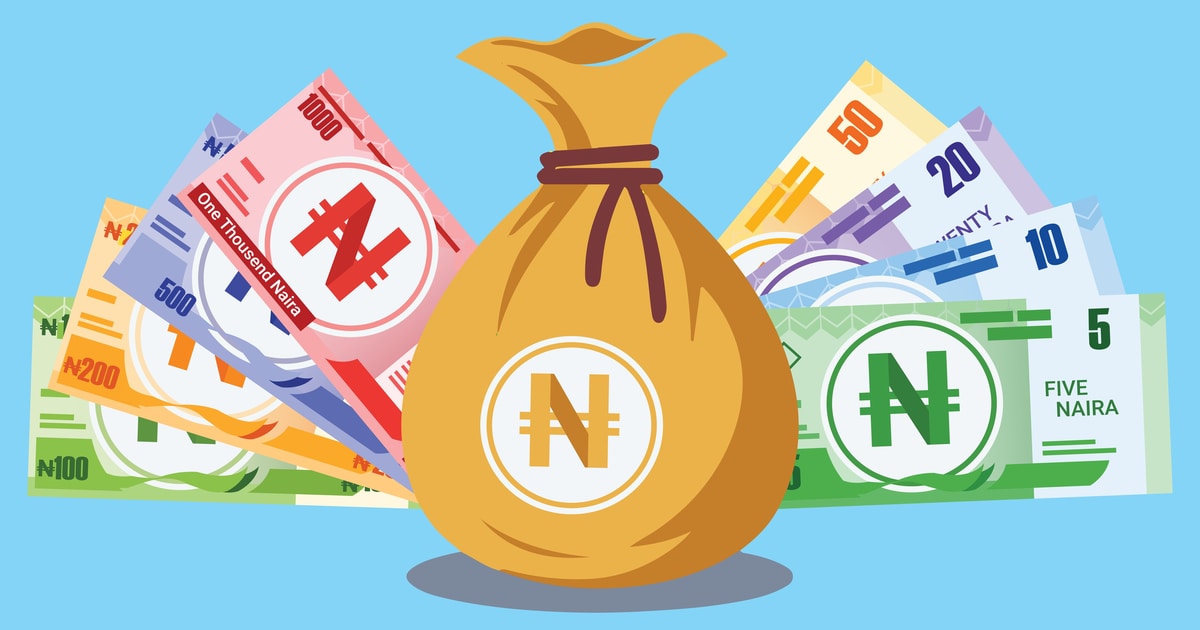Economy
TU Analysts Name Bybit as the Best Crypto Exchange for 2023

The rapidly expanding world of cryptocurrency trading has seen many platforms emerge, with Bybit as the leader in 2023. Recognized for its exceptional features and services, Bybit has gained the title of the best crypto exchange, according to Traders Union analysts.
Previously, the media has already published that the best crypto exchange is Bybit. Choosing the right platform cannot be understated, as it plays a crucial role in maximizing profits and ensuring a seamless trading experience.
How do crypto exchanges work?
Crypto exchanges are digital marketplaces that facilitate the buying, selling, and trading of cryptocurrencies. They connect buyers and sellers, allowing them to exchange cryptocurrencies for other digital assets or fiat currencies. Crypto exchanges employ order books to manage buy and sell orders, matching them based on price and quantity. Additionally, they provide users with various trading tools, such as charting and analysis, to assist in making informed trading decisions.
Tips for choosing the best crypto exchange?
TU experts stated the following tips for choosing the best crypto exchange:
- About cryptocurrency exchange: Research the exchange’s history, mission, regulatory status, and contact details to ensure it is a reputable and trustworthy platform.
- Trading conditions: Examine the list of available cryptocurrencies, trading fees, and other conditions to determine if the exchange meets your requirements.
- Training resources: Ensure the exchange offers educational materials and guides to help you navigate the platform and understand the basics of crypto trading.
- Analytics and news: Access to real-time market news and analysis allows you to make informed decisions and optimize your trading strategies.
- Customer service: A responsive customer support team is essential for addressing any issues or concerns that may arise.
- Communication channels: Multiple methods of contact, such as live chat and email, ensure prompt assistance is available when needed.
- Personal account: A user-friendly personal account interface allows for easy management of your trading activities, verification, and transaction history.
What are the best Crypto exchanges?
After analyzing various platforms, Traders Union has compiled a list of the 20 best crypto exchanges, with the top five include:
- Bybit
- KuCoin
- OKex
- Binance
- Huobi Global.
Why Bybit named the best crypto exchange?
According to Traders Union, Bybit earned its title as the best crypto exchange for 2023 due to several key features:
- User-friendly trading platform: Bybit offers a browser-based trading platform with advanced charting tools and customizable workspaces, ensuring a seamless experience for users.
- Various trading instruments: Traders can choose from diverse trading instruments, including perpetual contracts, futures contracts, and linear contracts.
- Deep liquidity and transparent order book: Bybit’s deep liquidity and transparent order book provide accurate market data and analysis, enabling informed trading decisions.
- Robust security measures: The platform prioritizes security, employing multi-signature cold storage wallets, two-factor authentication, and SSL encryption to protect user assets.
- Bybit offers a demo account: Bybit also offers a testnet Bybit demo account, allowing users to practice their trading skills and strategies without risking real capital.
Conclusion
In conclusion, Bybit is the premier choice for cryptocurrency traders seeking a reliable and efficient platform. By offering a user-friendly interface, diverse trading instruments, deep liquidity, robust security measures, and comprehensive customer support, Bybit has surpassed its competitors and secured the top spot in Traders Union’s rating of the best crypto exchanges for 2023.
Choosing the right crypto exchange is essential for maximizing profits and ensuring a smooth trading experience. Bybit’s outstanding features and services make it the ideal platform for novice and experienced traders. To learn more about Bybit and other top-rated crypto exchanges, visit the Traders Union’s official website, where you’ll find in-depth reviews, ratings, and valuable insights to help you make informed decisions in the dynamic world of cryptocurrency trading.
Economy
NCSP, NACCIMA Move to Unlock SME-led Industrial Growth

By Adedapo Adesanya
The Nigeria–China Strategic Partnership (NCSP) has reaffirmed its commitment to consolidate engagements with the Organised Private Sector while strengthening strategic collaboration to accelerate Nigeria’s industrial expansion, following a high-level meeting with the leadership of the Nigerian Association of Chambers of Commerce, Industry, Mines and Agriculture (NACCIMA).
The dialogue focused on aligning institutional efforts to deepen Nigeria–China economic cooperation and position Small and Medium Enterprises (SMEs) as primary beneficiaries of trade, manufacturing, and investment initiatives.
The Director-General of NCSP, Mr Joseph Tegbe, stated that the Partnership was established as a structured coordination platform to drive Nigeria’s strategic economic engagement with China in a disciplined and result-oriented manner.
He outlined its core mandates, including oversight of FOCAC-related initiatives, advancement of priority economic initiatives, and the facilitation of catalytic industrial projects across priority sectors.
Mr Tegbe emphasised that the next phase of engagement will prioritize harmonization of ongoing initiatives, stronger inter-agency coordination, and clearer execution frameworks to ensure Nigerian businesses, particularly SMEs, benefit more directly and sustainably from bilateral trade and investment initiatives.
According to a statement, NSCP said the meeting reviewed existing collaborations and investment pipelines, with both parties agreeing on the need to streamline coordination across federal and subnational levels to improve policy coherence, enhance implementation efficiency and eliminate fragmentation to take advantage of scale.
Mr Tegbe further highlighted the strategic importance of leveraging landmark trade instruments like China’s Zero-Tariff Agreement with African countries as a pathway to scale-up domestic manufacturing, deepen value addition, and strengthen Nigeria’s export competitiveness.
On his part, the President of NACCIMA and Chairman of the Organised Private Sector of Nigeria (OPSN), Mr Jani Ibrahim, commended NCSP’s structured engagement model and its deliberate focus on SMEs as drivers of inclusive industrial growth.
He reaffirmed the readiness of the organised private sector to collaborate closely with NCSP in mobilising enterprises, providing structured policy feedback, and ensuring measurable enterprise-level outcomes from Nigeria–China economic engagements.
Both sides identified practical pathways to integrate SMEs into manufacturing value chains linked to Chinese partnerships; expand agro-processing and value-added production; strengthen technical and vocational education collaborations to close industrial skills gaps; and promote the development of geo-cluster industrial parks capable of anchoring regional manufacturing ecosystems.
They agreed to establish a formal working interface to translate strategic alignment into measurable results, with defined focus areas including investment facilitation, SME capacity development, industrial cluster formation, and export-oriented growth.
The meeting underscores NCSP’s resolve to convert diplomatic goodwill into tangible economic gains, expand opportunities for Nigerian businesses and strengthen productive capacity, leveraging NACCIMA’s network, the statement added, saying this aligns with President Bola Tinubu’s Renewed Hope Agenda, which seeks to achieve sustained and inclusive growth anchored on industrial productivity and private-sector dynamism.
Economy
Nigeria’s Inflation Eases Further to 15.1% in January 2026

By Adedapo Adesanya
Nigeria’s headline inflation rate eased further to 15.10 per cent in January 2026, down from 15.15 per cent in December 2025, continuing the moderation that started in the latter months of 2025.
According to the National Bureau of Statistics (NBS), Consumer Price Index (CPI) declined to 127.4 points in January 2026, reflecting a 3.8-point decrease from the preceding month of December 2025, which came in as 131.2 points.
The data, which is the first of the year, beat analysts’ expectations, which had expected an 18 per cent growth. Instead, the January 2026 print showed a decrease of 0.05 per cent compared to the December 2025 Headline inflation rate.
On a year-on-year basis, the inflation rate was 12.51 per cent lower than the rate recorded in January 2025 (27.61 per cent). This shows that the Headline inflation rate (year-on-year basis) decreased in January 2026 compared to the same month in the preceding year.
On a month-on-month basis, the Headline inflation rate in January 2026 was -2.88 per cent, which was 3.42 per cent lower than the rate recorded in December 2025 (0.54 per cent). This means that in the review month, the rate of increase in the average price level was lower than the rate of increase in the average price level in December last year.
The percentage change in the average CPI for the twelve months ending January 2026 over the average for the previous twelve-month period was 21.97 per cent, showing a 4.37 per cent increase compared to 17.59 per cent recorded in January 2025.
Nigeria’s food inflation rate in January 2026 was 8.89 per cent on a year-on-year basis. This was 20.73 percentage points lower compared to the rate recorded in January 2025 (29.63 per cent).
On a month-on-month basis, the Food inflation rate in January 2026 was -6.02 per cent, down by 5.66 per cent compared to December 2025 (-0.36 per cent).
The decline can be attributed to the rate of decrease in the average prices of water yams, eggs, green peas, groundnut oil, soya beans, palm oil, maize (corn) grains, guinea corn, beans, beef meat, melon (egusi) unshelled, cassava tuber, and cow peas (white).
The NBS data showed that the average annual rate of food inflation for the twelve months ending January 2026 over the previous twelve-month average was 20.29 per cent, which was 18.18 percentage points lower compared with the average annual rate of change recorded in January 2025 (38.47 per cent).
Economy
Terrahaptix Secures Additional $22m from Investors, Valuation Hits $100m

By Adedapo Adesanya
Nigerian defence technology startup, Terra Industries, has extended its funding round to $34 million after securing an additional $22 million from investors, making it a $100 million company.
The new capital round was led by venture firm Lux Capital, with injections from the chief executive officer of Lagos-based unicorn Flutterwave, Mr Gbenga Agboola, as well as angel investors such as American actor Jared Leto and Jordan Nel.
The company said in a statement on Monday that the round was completed in under two weeks.
This comes weeks after it raised $11.75 million in January. That funding round was led by 8VC founded by the co-founder of Palantir Technologies Inc., Mr Joe Lonsdale. Other investors included Valor Equity Partners, Lux Capital, SV Angel, Leblon Capital GmbH, Silent Ventures LLC, Nova Global and angel investors, including Mr Meyer Malka — the managing partner of Ribbit Capital.
Some of the investors in the new round included 8VC, Nova Global, Silent Ventures, Belief Capital, Tofino Capital, and Resilience17 Capital, founded by Flutterwave CEO.
Terrahaptix, founded by Mr Nathan Nwachukwu and Mr Maxwell Maduka, will use the new funding to expand Terra’s manufacturing capacity as it expands into cross-border security and counter-terrorism.
The extension also comes amid growing international expansion. Earlier this month, Terra announced a partnership with Saudi industrial giant AIC Steel to launch a manufacturing hub in Saudi Arabia focused on producing infrastructure security systems.
In the coming weeks, the company also plans to unveil a mega factory, an indication of the company’s growth and importance, particularly as the need for security has risen in recent years, as groups such as Islamic State and al-Qaeda are gaining ground in Africa, converging along a swathe of territory that stretches from Mali to Nigeria.
According to Mr Nwachuku, the initial $11.75 million raise created significant momentum for the company, enabling it to close the additional $22 million in just under two weeks.
He added that beyond capital, the investors were selected for their experience building similar hard-tech and defence-focused companies.
-

 Feature/OPED6 years ago
Feature/OPED6 years agoDavos was Different this year
-
Travel/Tourism10 years ago
Lagos Seals Western Lodge Hotel In Ikorodu
-

 Showbiz3 years ago
Showbiz3 years agoEstranged Lover Releases Videos of Empress Njamah Bathing
-

 Banking8 years ago
Banking8 years agoSort Codes of GTBank Branches in Nigeria
-

 Economy3 years ago
Economy3 years agoSubsidy Removal: CNG at N130 Per Litre Cheaper Than Petrol—IPMAN
-

 Banking3 years ago
Banking3 years agoSort Codes of UBA Branches in Nigeria
-

 Banking3 years ago
Banking3 years agoFirst Bank Announces Planned Downtime
-

 Sports3 years ago
Sports3 years agoHighest Paid Nigerian Footballer – How Much Do Nigerian Footballers Earn





















